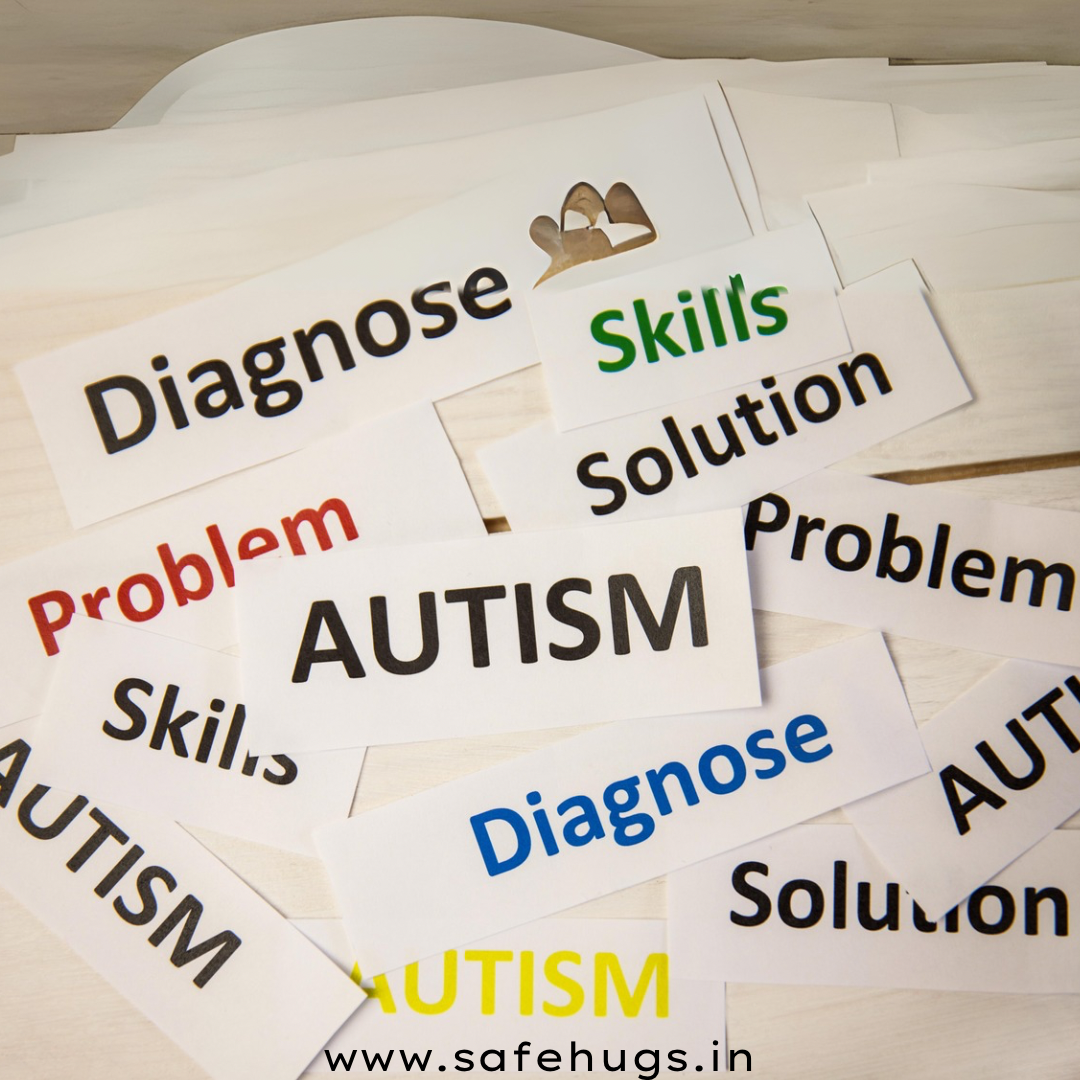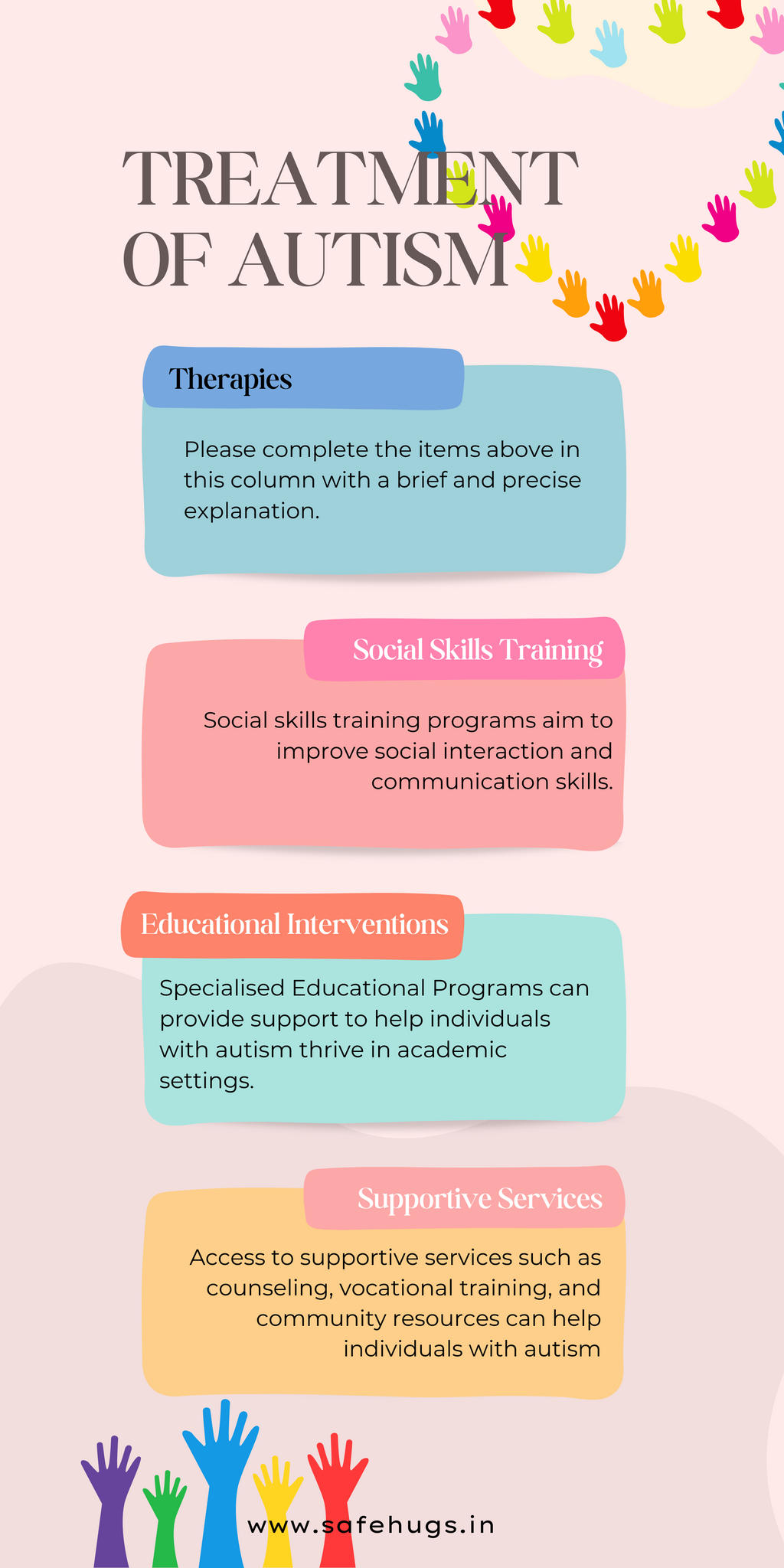Navigating the Path to Autism Treatment
Autism spectrum disorder (ASD) is a complex neurodevelopmental condition that manifests in various ways, impacting social communication, behavior, and sensory processing. While there is no cure for autism, early intervention and tailored treatment approaches can significantly improve outcomes and enhance the quality of life for individuals across the spectrum. In this comprehensive guide, we explore the multifaceted landscape of autism treatment, encompassing evidence-based interventions, therapeutic strategies, and holistic approaches aimed at addressing the diverse needs of individuals with ASD.

To Read more about Autism, click here.
Early Intervention:
Early intervention is paramount in the treatment of autism, as it capitalizes on the brain's plasticity during critical periods of development. Behavioral interventions, such as Applied Behavior Analysis (ABA), Early Start Denver Model (ESDM), and Pivotal Response Treatment (PRT), are commonly utilized to target core deficits in communication, social interaction, and adaptive skills. These interventions emphasize positive reinforcement, structured teaching methods, and individualized goal setting to promote skill acquisition and reduce challenging behaviors.
| "Early intervention is critical in autism treatment. Start interventions as soon as possible to capitalize on the brain's plasticity during early developmental stages. Evidence-based approaches such as Applied Behavior Analysis (ABA) and Early Start Denver Model (ESDM) can yield significant improvements in social communication, behavior, and adaptive skills." says Dr. Sally Rogers |
Speech and Language Therapy:
Many individuals with autism experience difficulties in speech and language development. Speech and language therapy (SLT) plays a crucial role in addressing these challenges by improving communication skills, enhancing expressive and receptive language abilities, and facilitating social interaction. Through tailored interventions focusing on verbal and nonverbal communication, pragmatic language skills, and augmentative and alternative communication (AAC) strategies, speech-language pathologists help individuals with ASD express themselves effectively and engage with others in meaningful ways.
Occupational Therapy:
Occupational therapy (OT) addresses sensory processing difficulties, motor coordination challenges, and adaptive skills deficits commonly observed in individuals with autism. By employing sensory integration techniques, fine and gross motor activities, and environmental modifications, occupational therapists assist individuals in regulating sensory input, developing motor proficiency, and mastering activities of daily living. OT interventions promote independence, foster self-care skills, and enhance participation in social and academic contexts.
To know about causes of Autism, visit.
Social Skills Training:
Social skills deficits are hallmark features of autism, often posing significant challenges in social interactions and peer relationships. Social skills training programs aim to teach individuals with ASD essential social skills, including initiating and maintaining conversations, interpreting nonverbal cues, and understanding social norms and expectations. Through structured group activities, role-playing exercises, and real-world simulations, social skills interventions provide opportunities for practice, feedback, and generalization of skills in various social contexts.
Medication Management:
While there are no medications specifically approved to treat the core symptoms of autism, pharmacotherapy may be prescribed to address associated conditions such as anxiety, depression, attention deficit hyperactivity disorder (ADHD), or disruptive behaviors. Psychotropic medications, including selective serotonin reuptake inhibitors (SSRIs), antipsychotics, stimulants, and alpha-2 agonists, are sometimes used to alleviate co-occurring symptoms and improve overall functioning. It's essential for healthcare providers to carefully assess the risks and benefits of medication interventions and monitor for potential side effects.
Complementary and Alternative Therapies:
In addition to conventional treatments, many families explore complementary and alternative therapies to supplement their child's autism intervention plan. These may include dietary interventions (e.g., gluten-free, casein-free diet), nutritional supplements (e.g., omega-3 fatty acids, vitamin B6), sensory-based therapies (e.g., music therapy, animal-assisted therapy), and mind-body practices (e.g., yoga, mindfulness meditation). While the evidence supporting the efficacy of these approaches varies, some individuals may benefit from integrative interventions tailored to their unique needs and preferences.

Conclusion:
Autism treatment is not one-size-fits-all; it requires a personalized and multidisciplinary approach that addresses the individual strengths, challenges, and goals of each person with ASD. By combining evidence-based interventions, therapeutic modalities, and family-centered support, we can empower individuals with autism to reach their full potential, navigate the complexities of everyday life, and thrive in a diverse and inclusive society. As we continue to advance our understanding of autism and refine our approaches to treatment, we move closer to unlocking the full spectrum of possibilities for individuals with ASD and their families.
FAQs:
- What are the 5 symptoms of autism?
Difficulty in social interaction, repetitive behaviors, communication challenges, sensory sensitivities, and difficulty in understanding non-verbal cues.
- Can a autistic person have a normal life?
Yes, with appropriate support and understanding, many autistic individuals can lead fulfilling lives.
- How does autism behave?
Autism manifests differently in each person, but common behaviors include difficulty in social situations, repetitive actions, sensory sensitivities, and intense focus on specific interests.
- What are the 3 main causes of autism?
Genetic factors, environmental influences, and prenatal factors are considered among the main causes of autism, though the exact causes remain complex and multifaceted.





























